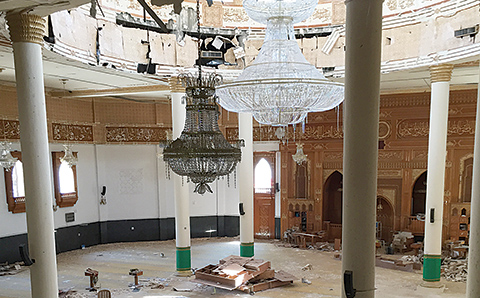Presided over by Judge Mohammad Al-Duaij, the court released the 11 suspects, including two women, without bail, but banned them from traveling and ordered them to attended all upcoming sessions. Those released included: Mohammad Khulaif, Mazna Khulaif, Fahad Al-Fadhly, Mohammad Al-Saeed, Daifallah Al-Saeed, Faraj Al-Enezi, Dhari Al-Ruwaie, Fahad Shukhair, Abdallah Al-Enezi, Abdelrahman Al-Ruwaili and Yasmeen Muhiddeen (Pakistani).
The main suspect, Abdulrahman Sabah Saud, renewed his confession at the second hearing that he transported the Saudi suicide bomber to the Kuwait City mosque attacked in June. But Saud insisted he was told by the suicide bomber, Fahad Al-Gabaa, he would only blow up the mosque after it was emptied of worshippers.
The prosecutor played footage taken by security cameras showing Saud driving the car with the bomber seated next to him, before he dropped him off and left. Saud, a stateless Arab, said the footage was genuine and recognized the bomber in the video.
The court set August 10 for the next hearing in the trial over the June 26 bombing that killed 26 people and wounded hundreds of others. On Tuesday, Saud told the court he was a member of ISIS that claimed responsibility for the attack, the worst in the history of the oil-rich Gulf state.
Although the public prosecution has not released the official charge sheets, a number of defendants stand accused of belonging to a banned group and taking part in the bombing. Saud also confessed to having transported the explosive belt from near the border with Saudi Arabia where two Saudi brothers, currently held in the kingdom, had left it.
Seven Kuwaitis, five Saudis, three Pakistanis, 13 stateless Arabs known as bedoon and another unnamed person at large were charged with involvement in the attack. An ISIS-affiliated group calling itself Najd Province claimed the Kuwait City bombing as well as suicide attacks at two Shiite mosques in Saudi Arabia in May. ISIS considers Shiites, minorities in both Gulf states, to be heretics and has targeted them across the region. - AFP




